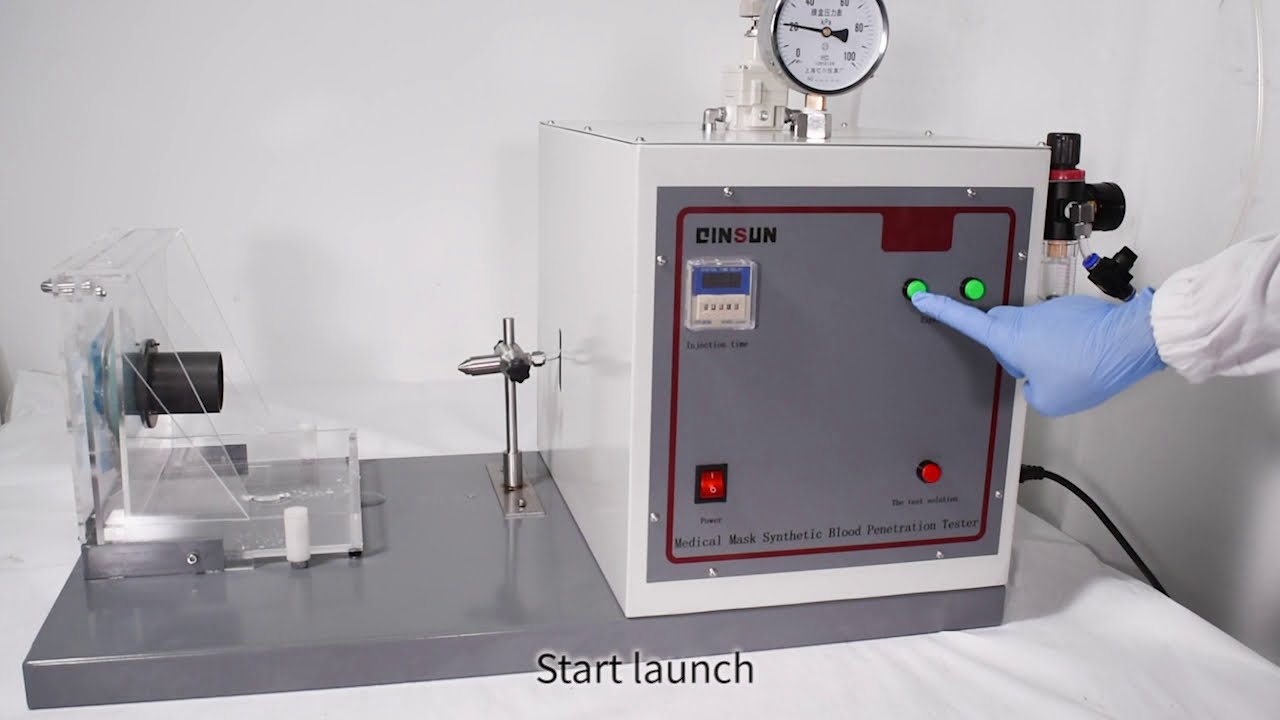Which medical masks is the synthetic blood permeation test method applicable?
The synthetic blood permeation test method is applicable to evaluate the impermeability of various types of medical masks. This includes, but is not limited to, the following types of masks:
1. medical surgical masks: typically used in operating rooms and other medical environments, these masks are designed to block oral and nasal secretions from healthcare workers and to reduce the spread of bacteria in surgical scenarios.
2. medical filtration masks (N95 masks, etc.): these masks have a highly efficient filtering layer that filters out airborne particles, including pathogens and bacteria. They play an important role in preventing respiratory transmission of pathogens.

3. medical protective masks: these masks typically provide more complete face coverage and are able to withstand splashes, sprays and liquid splashes, providing more comprehensive protection for medical personnel.
4. medical necktie masks (Balaclava-style masks): these masks cover the head, neck and mouth to provide additional protection and coverage.
Synthetic blood penetration test methods are designed to assess the resistance of a mask to blood penetration and are therefore suitable for masks that need to protect against blood splash and contamination in a medical environment. These test methods help to validate the performance and compliance of masks and ensure that healthcare workers are able to use them safely to reduce the risk of infection.
It is important to note that specific test methods and requirements may vary from one standard and specification to another. Therefore, reference should be made to applicable standards documents and relevant guidelines when determining the applicable test methods.

